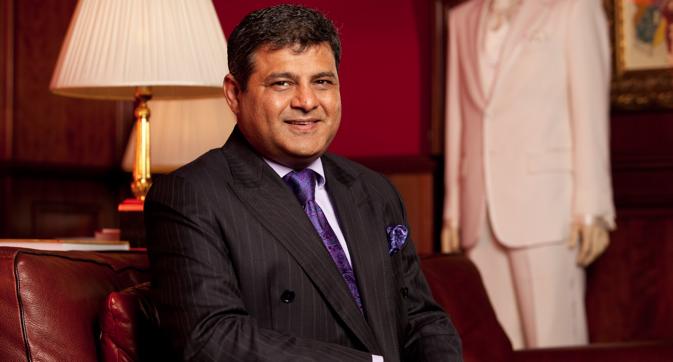Global Issues
India’s Role in Enforcing Diversity within BRICS -By Kestér Kenn Klomegâh
India navigates a nuanced path in the context of global competition with China and Russia within the Global South. While recognizing China’s economic prowess and Russia’s strategic significance, India positions itself as a vibrant democracy, a burgeoning economic powerhouse, and a key player in fostering South-South cooperation.

BRICS (Brazil, Russia, India, China and South Africa), an informal association of emerging economies that primarily seeks to promote economic cooperation and development among its members, under Russia’s presidency has admitted five new members – Egypt, Ethiopia, Iran, Saudi Arabia and the United Arab Emirates into its fold. Russia has made the association’s expansion of its numerical strength one of its priorities this year 2024.
Within the context of geopolitical changes, that priority step to widen its geographical scope represents an important stage in the further development and strengthening of BRICS+ position on the world stage. Further aiming at creating a cohesive alliance to fight European and Western hegemony, BRICS+ however faces several challenges including differences in political systems, economic structures and cultural norms of its member countries.
In this interview, President of Indian Business Alliance (IBA) and Founder of The Imperial Tailoring Co., Sammy Kotwani, says despite those challenges mentioned above, there are also many reasons to be optimistic about the prospects for BRICS+ and the Global South collaboration. Aware of the current evolving geopolitical power dynamics, BRICS+ possesses the collective strength and unique capacity to address the challenges of diversity and unequal distribution of resources in the Global South. Here are the interview excerpts:
With rising political differences and economic developments, a number of countries are gearing for ascension unto BRICS (Brazil, Russia, India, China and South Africa). In your view what are the benefits of BRICS expansion?
The expansion of BRICS, comprising Brazil, Russia, India, China, and South Africa, marks a significant stride towards fostering economic cooperation, geopolitical balance, and sustainable development. The collective strength of these diverse economies offers a multitude of benefits, such as enhanced trade opportunities, technological collaboration, and investment inflow. BRICS expansion not only amplifies the voice of emerging economies on the global stage but also promotes inclusive growth, innovation, and resilience amidst geopolitical uncertainties. The synergy among BRICS nations cultivates a conducive environment for knowledge sharing, infrastructure development, and capacity-building initiatives, ultimately driving economic prosperity and social progress across member states.
During its presidency in 2023, India played its part, but it seemingly encounter challenges with Russia and China over the question relating to Ukraine. Within the context of BRICS, does India support Russia against Ukraine?
India, as a longstanding proponent of multilateralism and peaceful resolution of conflicts, upholds diplomatic dialogue and negotiation as key tenets of foreign policy. In the context of BRICS, India advocates for dialogue and consensus-building to address regional challenges, including those related to Ukraine. While maintaining cordial relations with all BRICS members, India prioritizes a balanced and pragmatic approach towards addressing geopolitical tensions, upholding the principles of sovereignty, non-interference, and mutual respect among nations.
What are your arguments here, that India faces competition with China vis-avis with Russia in leading the what is referred to as Global South?
India navigates a nuanced path in the context of global competition with China and Russia within the Global South. While recognizing China’s economic prowess and Russia’s strategic significance, India positions itself as a vibrant democracy, a burgeoning economic powerhouse, and a key player in fostering South-South cooperation. Leveraging its cultural diversity, technological advancements, and entrepreneurial potential, India aims to consolidate its role as a responsible global player, championing inclusive development, innovation, and sustainable growth in partnership with other emerging economies.
With the narratives and the reasons for the scramble for Africa’s resources and Russia making its inroads into the continent, how would you assess BRICS (excluding South Africa) members’ strategic economic footprints across Africa?
The strategic economic footprints of BRICS members across Africa offer a transformative narrative of collaboration, investment, and capacity-building initiatives. While each BRICS member brings unique strengths and resources to the African continent, concerted efforts towards infrastructure development, technology transfer, and skill enhancement have propelled economic growth, social development, and mutual prosperity. Russia’s engagements in Africa underscore the region’s strategic importance, while coordinated actions by BRICS members amplify the impact of joint initiatives, fostering sustainable development across diverse sectors.
How do you view perspectives for the Global South towards the emerging new economic architecture, especially the concept of de-dollarization?
The transition towards a new economic architecture, characterized by de-dollarization and diversification of global financial frameworks, presents immense opportunities and challenges for the Global South. The concept of de-dollarization signifies a shift towards financial independence, stability, and resilience, aiming to reduce dependency on traditional monetary systems and mitigate economic vulnerabilities. Embracing this evolving paradigm, the Global South can harness its collective strengths, promote financial inclusivity, and shape a more equitable and sustainable economic order, fostering inclusive growth and mutual prosperity.
Do you agree that the International Monetary Bank (IMF) and the World Bank, in terms of scope of operations and geographical performance, are far ahead of the New Development Bank (BRICS Bank)?
The New Development Bank (BRICS Bank), though in its nascent stage, demonstrates a promising alternative to the IMF and World Bank, offering a platform for emerging economies to mobilize financial resources, fund sustainable projects, and address developmental challenges. While the IMF and world Bank boast a longer operational history and broader geographical reach, the NDB, with its focus on infrastructure financing, sustainable development, and inclusivity, presents a nimble and responsive financing model tailored to the needs of BRICS member states and beyond. As the NDB evolves, strategic coordination among international financial institutions can foster synergies, promote financial stability, and catalyze inclusive growth worldwide.
As President of the Indian Business Alliance (IBA) in the Russian Federation, do you envisage India, on the platform of BRICS, to demonstrate practical steps in enforcing the diversity in culture, fashion, sports and education) along the pathways of multipolarism?
As President of the Indian Business Alliance in the Russian Federation, I envision India, through the platform of BRICS, to champion cultural exchange, fashion innovation, sports diplomacy, and educational collaboration, celebrating diversity and inclusivity along the pathways of multipolarism. India’s rich cultural heritage, vibrant fashion industry, sports prowess and education.



















